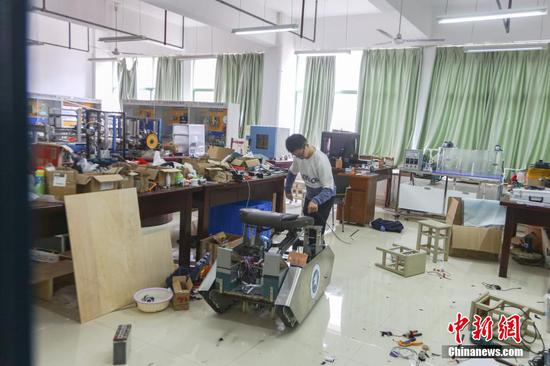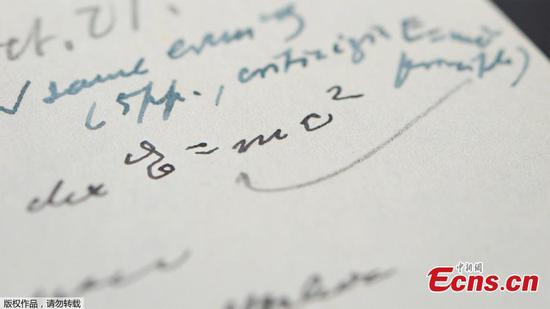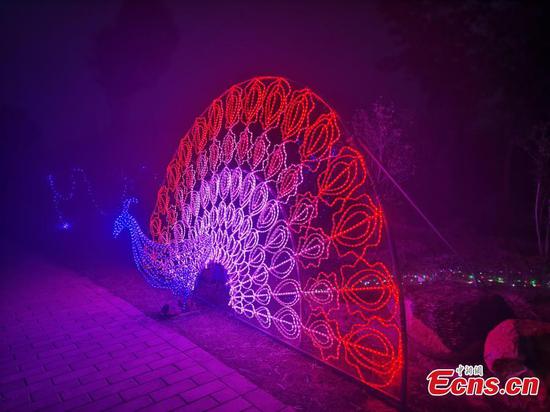
Liu Xin, a college student from Nanchang Hangkong University, invented the automatic stair-climbing wheelchair. (Photo/China News Service)
(ECNS) -- A college student suffering cerebral palsy has invented an automatic stair-climbing wheelchair to help more people with mobility difficulties.
With a design load of 150 kg, the wheelchair can reach 0.2 meters per second when going up and down stairs and two to three meters per second on level ground.
The intelligent stair-climbing wheelchair has two kinds of motion structures, one with wheels and the other with a track, said Liu Xin, the inventor.
Liu is a junior at Nanchang Hangkong University based in south China's Jiangxi Province. He was diagnosed with cerebral palsy at birth. Natural human behaviors like speaking, writing and walking are extremely difficult for him. After seeing the inconvenient campus life of a senior with paraplegia, he decided to create the automatic stair-climbing wheelchair.
"My wheelchair has two advantages, self-driving along the planned route and voice control," said the boy.
In 2020, his intelligent wheelchair project won the championship in the provincial mechanical innovation design competition for college students, then won first prize in the national competition and was granted the national invention patent.
Liu said he hopes his wheelchair will be promoted around the country. "I hope to create an automatic stair-climbing wheelchair that functions well at a low price to help more people and contribute to society," said Liu.


















































